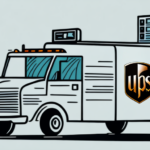Understanding FedEx Chargeback Fees
As a business owner shipping packages through FedEx, it's crucial to comprehend chargeback fees. These fees can significantly impact your finances and reputation. This article delves into what chargeback fees are, their relation to FedEx, and strategies to avoid them.
What Are Chargeback Fees?
Chargeback fees are costs merchants incur when a customer disputes a transaction. These fees aim to offset the expenses involved in processing the dispute. The amount varies based on the payment processor, the dispute's reason, and its outcome.
Common reasons for chargebacks include fraud, unauthorized transactions, and dissatisfaction with goods or services. Merchants can mitigate chargebacks by offering clear product descriptions, responding promptly to customer inquiries, and securing their payment processing systems.
What Is a FedEx Chargeback Fee?
A FedEx chargeback fee occurs when a customer disputes a FedEx transaction. Also known as transaction dispute fees or chargeback reversal fees, these charges cover FedEx's costs in processing and investigating the claim.
The fee amount depends on the transaction type and dispute reason. For instance, disputes over undelivered packages may incur higher fees than those stemming from billing errors. Preventing chargebacks through excellent customer service and clear communication is essential.
Why Does FedEx Charge Chargeback Fees?
FedEx imposes chargeback fees to cover the costs of processing disputes and to discourage fraudulent activities. These fees ensure that merchants remain accountable and that the dispute resolution process remains fair for all parties involved.
Additionally, chargeback fees help FedEx recover expenses related to investigating and resolving disputes, allowing them to maintain high-quality dispute resolution services.
Costs and Consequences of FedEx Chargeback Fees
How Much Is the FedEx Chargeback Fee?
The FedEx chargeback fee typically ranges from $15 to $35 per transaction, varying based on the dispute's reason and outcome. High-risk merchants or large transaction disputes may attract higher fees.
Beyond chargeback fees, merchants might also face lost revenue from disputed transactions and additional fees from payment processors or banks. To minimize these costs, provide accurate shipping information, clear product descriptions, and excellent customer service.
Consequences of Not Paying FedEx Chargeback Fees
Failing to pay FedEx chargeback fees can lead to legal action, including liability for the chargeback amount plus interest, penalties, and attorney fees. FedEx may also terminate your shipping privileges, adversely affecting your business operations.
Non-payment can damage your business reputation, making other shipping companies reluctant to work with you and potentially harming customer relationships reliant on timely shipping.
Ignoring chargeback fees can induce financial strain, leading to debt or bankruptcy. It's vital to address these fees promptly and collaborate with FedEx to resolve any issues.
Impact of High Volumes of Chargebacks on Your Business
High chargeback volumes can result in lost revenue, increased fees, damaged reputation, and potential termination of shipping privileges. Addressing the underlying causes of chargebacks and implementing prevention strategies is essential.
Fraud and poor customer service are primary contributors to chargebacks. Implementing fraud prevention measures like address verification and requiring CVV codes can reduce fraudulent transactions, while excellent customer service can prevent dissatisfaction-driven chargebacks.
Prevention and Best Practices
How to Avoid FedEx Chargeback Fees
Preventing disputes is the most effective way to avoid chargeback fees. Here are some strategies:
- Provide detailed and accurate product descriptions
- Respond promptly to customer inquiries and complaints
- Ensure your billing descriptor is recognizable to customers
- Obtain proof of delivery
- Use fraud prevention tools and services
Efficient and reliable shipping processes, clear return and refund policies, and accurate tracking information further minimize chargeback risks.
Best Practices for Managing and Minimizing FedEx Chargeback Fees
Implementing the following best practices can help manage and reduce chargeback fees:
- Monitor your chargeback rates and address issues immediately
- Develop a chargeback prevention strategy
- Respond promptly to customer inquiries and complaints
- Ensure your billing descriptor is recognizable
- Utilize fraud prevention tools and services
Understanding the different types of chargebacks and their fees allows you to tailor your prevention efforts effectively.
Tips for Communicating with Customers
Effective communication with customers can prevent potential chargebacks. Consider the following tips:
- Provide detailed and accurate product descriptions
- Solicit feedback and address issues promptly
- Ensure your billing descriptor is recognizable
- Use email alerts to notify customers of any issues and prevention methods
Handling Chargebacks
How to Dispute a FedEx Chargeback Fee
If you believe a FedEx chargeback fee was assessed in error, you can dispute it by providing evidence such as proof of delivery, customer communication records, and transaction records. Contact FedEx to initiate the dispute resolution process.
Disputing a chargeback fee can be time-consuming, potentially taking weeks or months to resolve. Maintain communication with FedEx and keep detailed records of all related documentation.
How to Monitor and Track Your Chargebacks with FedEx
Use the FedEx Billing Online tool to monitor and track chargebacks. This tool allows you to view invoices, payment history, and dispute statuses. Additionally, set up email alerts to stay informed about any billing issues.
Technology and Compliance
The Role of Technology in Reducing FedEx Chargeback Fees
Leveraging technology is pivotal in reducing chargeback fees. Implement fraud prevention tools, analytics, and automation to identify and address issues that may lead to chargebacks. Automation can streamline the dispute resolution process, reducing your team’s workload.
Advanced analytics can help detect patterns indicative of fraud or other chargeback triggers, allowing proactive measures to be taken.
Regulatory Compliance Considerations
When dealing with FedEx chargebacks, ensure compliance with relevant laws and regulations such as the Fair Credit Billing Act and the Electronic Funds Transfer Act. Adhering to these regulations helps in effectively managing chargebacks and avoiding legal complications.
Real-World Examples and Summary
Case Studies: Successful Strategies to Reduce FedEx Chargeback Fees
An example of effective chargeback reduction is a clothing retailer that implemented fraud prevention tools, provided detailed product descriptions, and responded promptly to customer inquiries and complaints. These measures resulted in a 50% reduction in chargebacks.
Summary: Key Takeaways for Managing FedEx Chargeback Fees
- Chargeback fees occur when customers dispute transactions, impacting merchant finances.
- FedEx charges these fees to cover dispute processing costs and deter fraud.
- The fee amount varies based on the dispute's reason and outcome.
- Prevent chargebacks by providing accurate product descriptions, responsive customer service, and robust fraud prevention.
- High chargeback volumes can severely affect your business's reputation and finances.
- Utilize technology to reduce chargeback risks effectively.
- Ensure compliance with all relevant laws and regulations when handling chargebacks.
- Learn from successful case studies to implement effective chargeback reduction strategies.






















